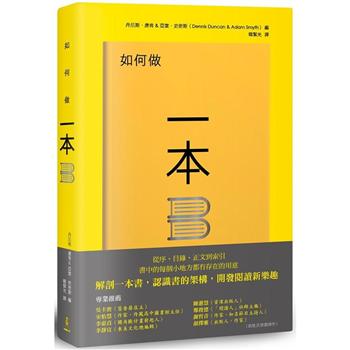The volume is a collection of best selected research papers presented at International Conference on Advances in Data-driven Computing and Intelligent Systems (ADCIS 2023) held at BITS Pilani, K K Birla Goa Campus, Goa, India during 21 - 23 September 2023. It includes state-of-the art research work in the cutting-edge technologies in the field of data science and intelligent systems. The book presents data-driven computing; it is a new field of computational analysis which uses provided data to directly produce predictive outcomes. The book will be useful for academicians, research scholars, and industry persons.
| FindBook |
|
有 1 項符合
Advances in Data-Driven Computing and Intelligent Systems: Selected Papers from Adcis 2023, Volume 4的圖書 |
 |
$ 14999 | Advances in Data-Driven Computing and Intelligent Systems: Selected Papers from Adcis 2023, Volume 4
出版社:Springer 出版日期:2024-04-11 語言:英文 規格:平裝 / 普通級/ 初版  看圖書介紹 看圖書介紹
|
|
|
內容簡介
作者簡介
Dr.Swagatam Das received the B. E.Tel. E., M. E. Tel. E (Control Engineering specialization) and Ph. D. degrees, all from Jadavpur University, India, in 2003, 2005, and 2009 respectively.Swagatam Das is currently serving as an associate professor and Head of theElectronics and Communication Sciences Unit of the Indian Statistical Institute, Kolkata, India. His research interests include evolutionary computing and machine learning. Dr. Das has published more than 300 research articles in peer-reviewed journals and international conferences. He is the founding co-editor-in-chief of Swarm and Evolutionary Computation, an international journal from Elsevier. He has also served as or is serving as the associate editors of the IEEE Transactions on Cybernetics, Pattern Recognition(Elsevier), Neurocomputing (Elsevier), Information Sciences (Elsevier), IEEETrans. on Systems, Man, and Cybernetics: Systems, and so on. He is an editorial board member of Information Fusion (Elsevier), Progress in Artificial Intelligence(Springer), Applied Soft Computing (Elsevier), Engineering Applications of Artificial Intelligence (Elsevier), and Artificial Intelligence Review(Springer). Dr. Das has 25,000+ Google Scholar citations and an H-index of 76till date. He has been associated with the international program committees and organizing committees of several reputed international conferences including NeurIPS, AAAI, AISTATS, ACM Multimedia, BMVC, IEEE CEC, GECCO, etc. He has acted as guest editors for special issues in journals like IEEE Transactions on Evolutionary Computation and IEEE Transactions on SMC, Part C. He is the recipient of the 2012 Young Engineer Award from the Indian National Academy of Engineering (INAE). He is also the recipient of the 2015 Thomson Reuters Research Excellence India Citation Award as the highest cited researcher from India in Engineering and Computer Science category between 2010 to 2014.
Prof.Carlos A. Coello Coello (Fellow, IEEE) received the Ph.D. degree in computer science from Tulane University, New Orleans, LA, USA, in 1996. He is currently a Professor with Distinction (CINVESTAV-3F Researcher), Computer Science Department, CINVESTAV-IPN, Mexico City, Mexico. He has authored and coauthored over 500 technical papers and book chapters. He has also co-authored the book Evolutionary Algorithms for Solving Multiobjective Problems (2nd ed., Springer, 2007) and has edited 3 more books with publishers such as World Scientific and Springer. His publications currently report over 60000 citations in Google Scholar (his H-index is 96). His major research interests are evolutionary multiobjective optimization and constraint-handling techniques for evolutionary algorithms. He has received several awards, including the National Research Award (in 2007) from the Mexican Academy of Science (in the area of exact sciences), the 2009 Medal to the Scientific Merit from Mexico City’s congress, the Ciudad Capital: Heberto Castillo 2011 Award for scientists under the age of 45, in Basic Science, the 2012 Scopus Award (Mexico’s edition) for being the most highly cited scientist in engineering in the 5 years previous to the award and the 2012 National Medal of Science in Physics, Mathematics and Natural Sciences from Mexico’s presidency (this is the most important award that a scientist can receive in Mexico). He also received the Luis Elizondo Award from the Tecnológico de Monterrey in 2019. Additionally, he is the recipient of the 2013 IEEE Kiyo Tomiyasu Award, "for pioneering contributions to single- and multiobjective optimization techniques using bioinspired metaheuristics", of the 2016 The World Academy of Sciences (TWAS) Award in "Engineering Sciences", and of the 2021 IEEE Computational Intelligence Society Evolutionary Computation Pioneer Award. Since January 2011, he is an IEEE Fellow. He is currently the Editor-in-Chief of the IEEE Transactions on Evolutionary Computation.
Dr.Hemant Rathore has completed his Bachelor of Engineering (B.E.) in computer science from RGTU, followed by Master of Engineering (M.E) in software systems and Doctor of Philosophy (Ph.D.) from BITS Pilani. He is currently working as an Assistant Professor in the Department of CS & IS, BITS Pilani, K K Birla Goa Campus, India. He has strong academic and industry research experience in the field of data science. His current research interests are in the area of machine learning and deep learning, specifically adversarial robustness, explainability, and interpretability. He has published many research papers in various top journals. He has taught and likes to teach courses like Machine Learning, Advanced Data Mining, Data Mining, and Network Security to undergraduate and postgraduate students. He has also guided numerous students for short-term various projects.Dr. Jagdish Chand Bansal is an Associate Professor (Senior Grade) at South Asian University New Delhi and Visiting Faculty at Maths and Computer Science, Liverpool Hope University UK. He also holds visiting professorship at NIT Goa, India. Dr. Bansal obtained his Ph.D. in Mathematics from IIT Roorkee. Before joining SAU New Delhi, he worked as an Assistant Professor at ABV- Indian Institute of Information Technology and Management Gwalior and BITS Pilani. His Primary area of interest is Swarm Intelligence and Nature Inspired Optimization Techniques. Recently, he proposed a fission-fusion social structure based optimization algorithm, Spider Monkey Optimization (SMO), which is being applied to various problems in the engineering domain. He has published over 70 research papers in various international journals/conferences. He is the Section Editor (editor-in-chief) of the journal MethodsX published by Elsevier. He is the series editor of the book series Algorithms for Intelligent Systems (AIS), Studies in Autonomic, Data-driven and Industrial Computing (SADIC), and Innovations in Sustainable Technologies and Computing (ISTC) published by Springer. He is also the Associate Editor of Engineering Applications of Artificial Intelligence (EAAI) and ARRAY published by Elsevier. He is the general secretary of the Soft Computing Research Society (SCRS). He has also received Gold Medal at UG and PG levels.
|









